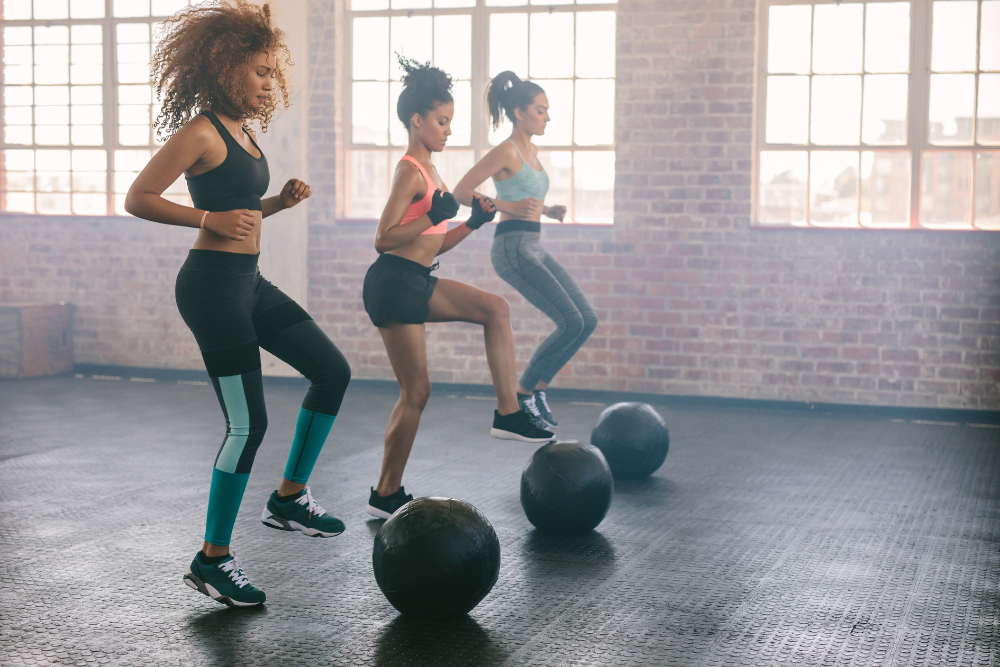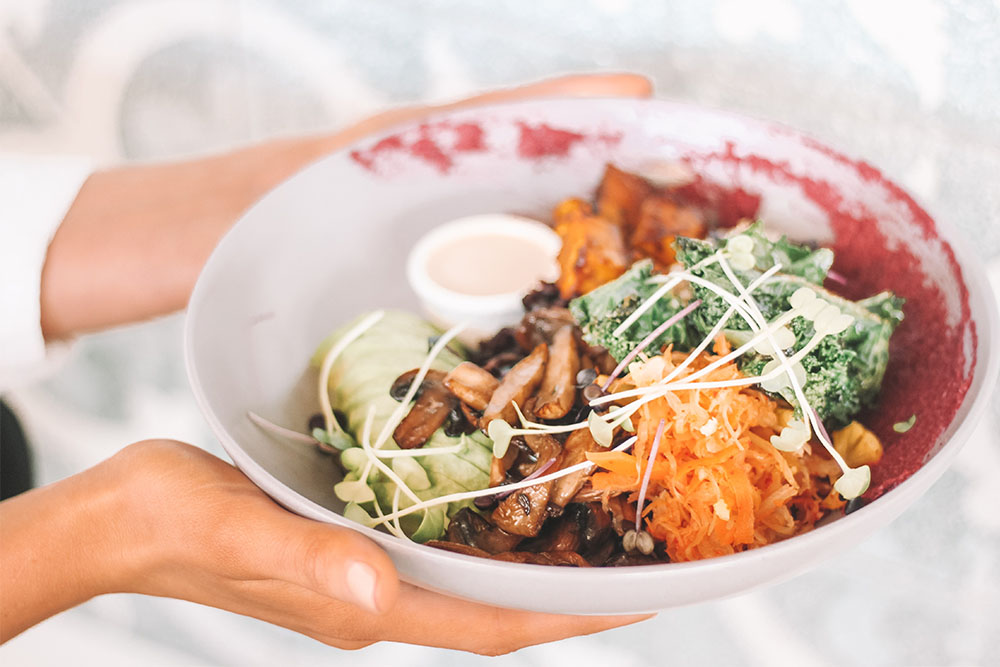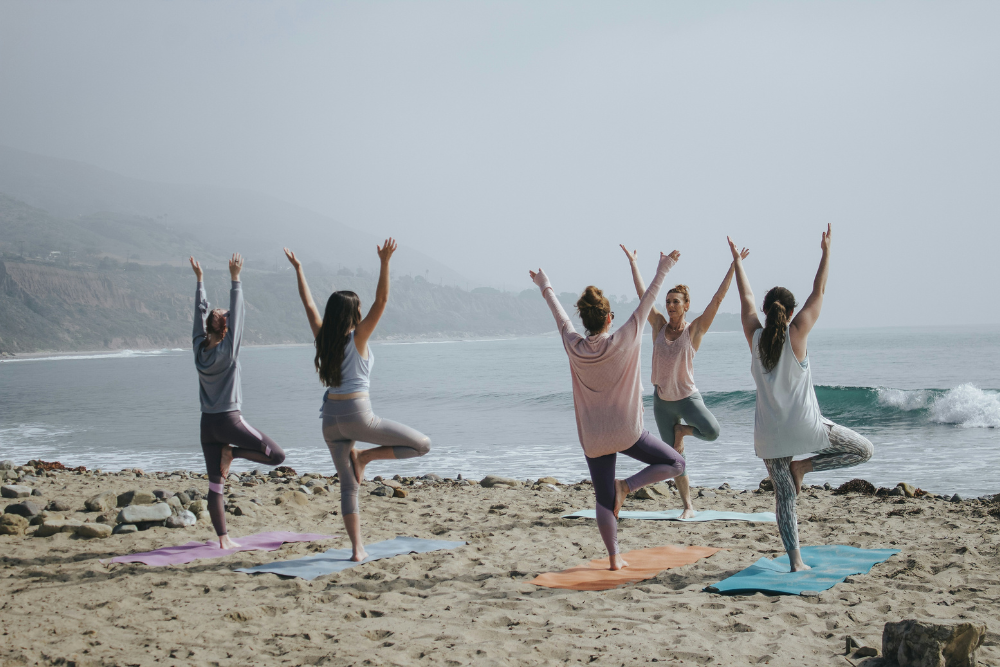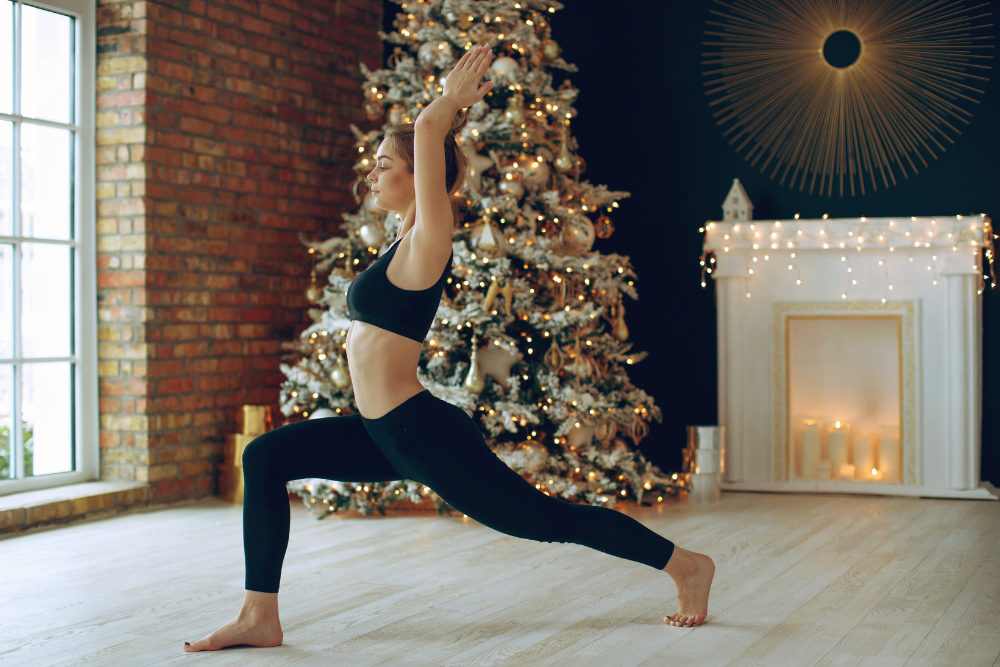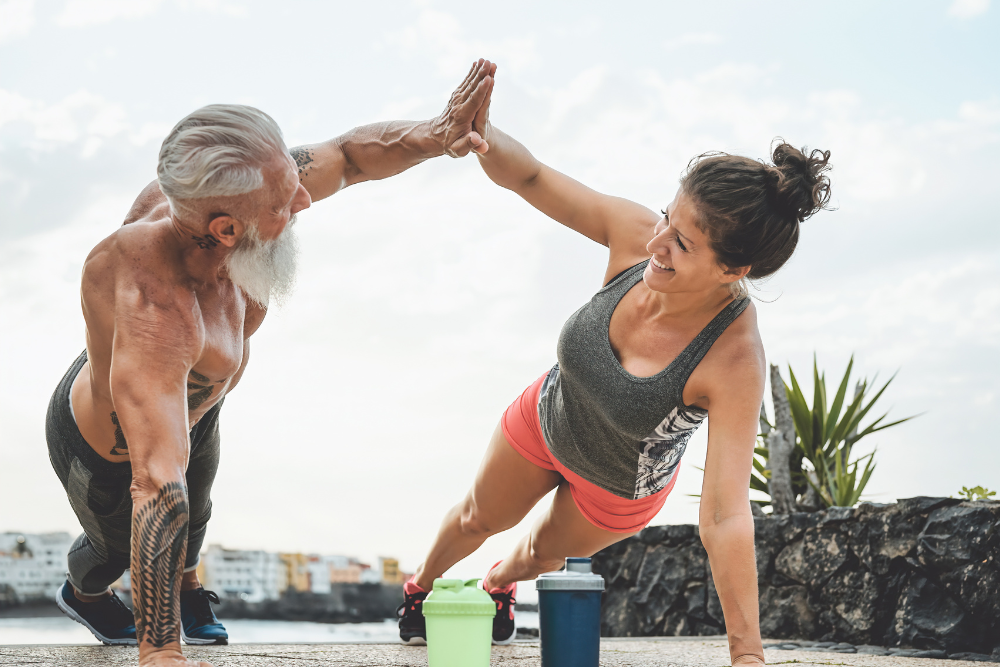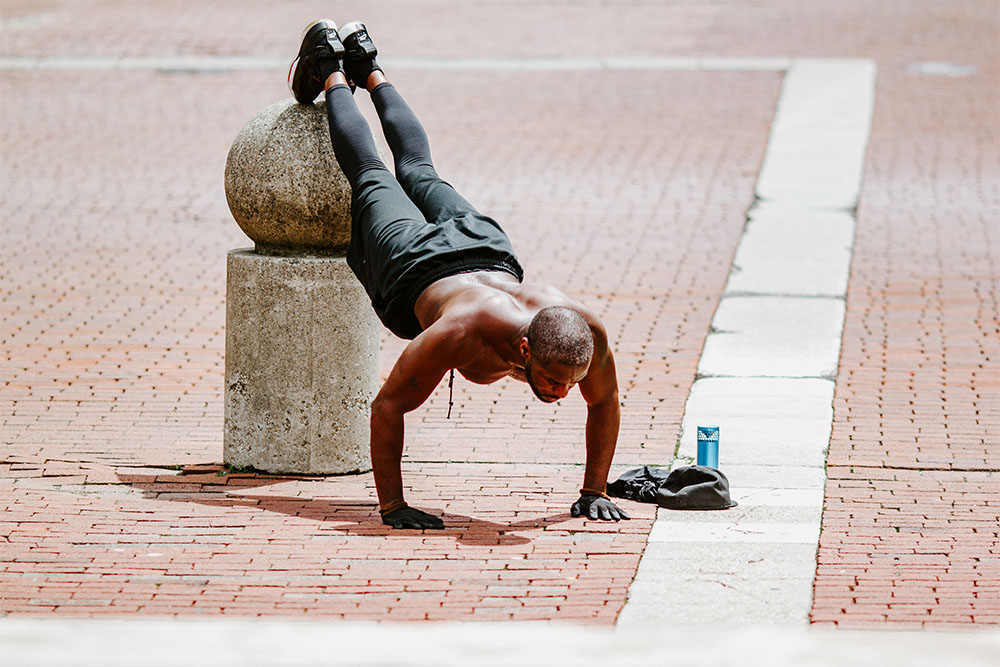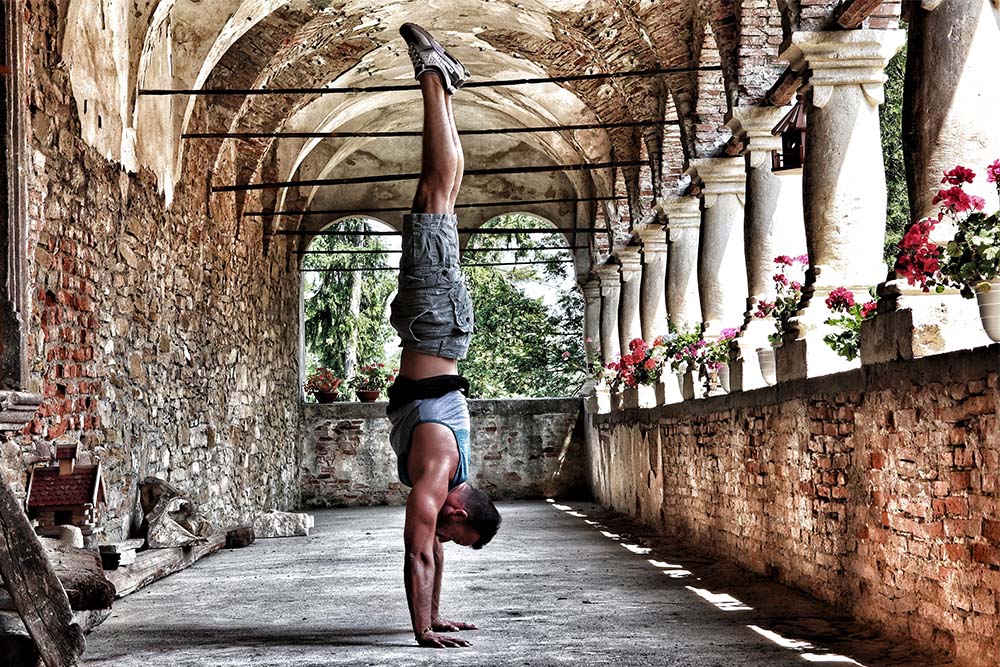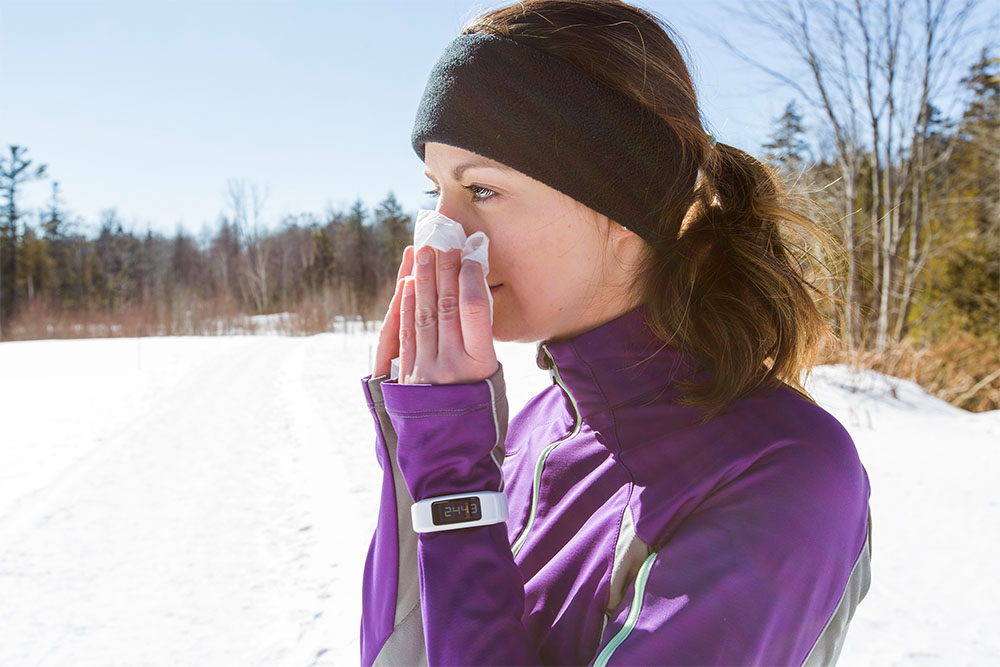Coffee: Fitness Friend or Foe?

Adriane Cook
B.S. Kinesiology, Michigan State University
Nothing quite unites a country like its love for coffee. People will stand in unusually quiet lines to purchase it, cram into hobbit-size buildings to enjoy it, and will high-five a stranger once (and not a moment before!) the sweet caffeine nectar touches their lips.
So it’s no wonder that when recent studies came out to highlight coffee’s health benefits, the nation collectively raised the roof and exhaled a sigh of relief.
It was once believed that drinking coffee increased one’s risk of cardiovascular disease. But Harvard University is fierce and extensive in its black beverage research. Alvin Powell states in his article How Coffee Loves Us Back, “Harvard scientists have for years put coffee under the microscope. Last year, researchers announced they had discovered six new human genes related to coffee and reconfirmed the existence of two others. The long-running Nurses’ Health Study has found that coffee protects against type 2 diabetes and cardiovascular disease. Researchers are continuing to follow up on 2001 findings that it protects against Parkinson’s disease.”
Related Article: Will Exercise Help Prevent Parkinson’s Disease?
In the same article from the Harvard Gazette, other findings include, but are not limited to…
“Regular coffee drinking was linked in a 2011 Harvard study to lower risk of a deadly form of prostate cancer.
In 2011, a study showed that drinking four or more cups a day lowered the rate of depression among women.
A 2012 study tied three cups a day to a 20 percent lower risk of basal cell carcinoma.
A 2013 Harvard study linked coffee consumption to a reduced risk of suicide.”
https://purity.coffee/coffee-and-health/
Although research on this topic is far from conclusive, this is pretty good news for the average Joe and his cup, but what about the fitness enthusiasts?
Will coffee consumption help to improve one’s strength and endurance, or can it ultimately hinder an individual’s desire to reach and maintain his or her fitness goals?
Like most answers to complex questions, this one is similar… It depends. Coffee’s fitness benefits depend on:
NOTHING
Nothing in your coffee, that is. Natural health experts are also on board with this one. “If you want to drink coffee for its health benefits, drink your coffee black, without sugar, non-dairy creamer or cream, or flavorings. If you are dousing your cup of coffee in creamer, non-dairy creamer, sugar, and other sweeteners and flavorings, you are missing out on the therapeutic benefits and potentially harming your health.” (Dr. Mercola, Another Perk for Drinking Coffee)
Take-Home Tip: If black coffee is no problem to sip, consider these additional tips from Dr. Mercola, “Coffee beans are one of the most heavily pesticides-sprayed crops. So, you should select only coffee beans that are certified organic. Remember, you will obliterate any positive effects if you consume coffee that’s been doused in pesticides or other chemicals.”
To convert a chemical-filled cup of coffee to black, try gradual change. Slowly reduce the amount of creamer, sugars, or artificial sweeteners over time until coffee is a full cup of pure antioxidants.
Related Article: Sugar – Is It Hurting Your Healthy Lifestyle?
TIMING
Researchers and athletes agree; timing is everything. The International Journal of Sport Nutrition and Exercise Metabolism states in The Effects of Pre-exercise Caffeinated Coffee Ingestion on Endurance Performance, “Significant improvements in endurance performance were observed.” If one wants to see increased energy, focus, and muscle sustainability in his workouts, consumption must occur at an optimal time prior to exercise.
Take-Home Tip: As will be discussed below, optimal timing will vary per person. If consuming coffee for the first time prior to exercise, consider time of day of the workout, the amount (and time elapsed) of consumption, and note energy and performance levels before, during, and after physical activity. It may take some trial and error to find an individual’s ideal pre-exercise timing.
YOU
Each individual’s reaction time and sensitivity to caffeinated coffee is different. The Taylor or Francis Online Journal puts it this way in its article Caffeine Use in Sports, Pharmacokinetics in Man, and Cellular Mechanisms of Action, “There is, however, considerable inter-individual variability in the handling of caffeine by the body, due to both environmental and genetic factors.” When it comes to timing and amount of coffee to consume, the consumer must use the old but trusty adage, “Listen to Your Body.”
Related Article: Listen To Your Body: Setting Attainable Fitness Goals
Take-Home Tip: Recreational consumption will be a great beginner’s guide to one’s sensitivity to drinking coffee prior to physical activity. The amount of coffee required for an individual to feel the effects of caffeine during non-exercise intake will be a good indicator of volume required for performance enhancing benefits.
So what can the athlete, casual cardio queen, or the regular weekend warrior gain from black coffee consumption prior to his or her workout? Simply put, the ergogenic aid can boost an individual’s ability to exercise with greater intensity and/or duration. This will ultimately benefit an individual’s desire to reach and achieve his or her fitness goals. If one can follow the basic guidelines above and tailor to his or her individual results, it’s a safe and effective way to Keep Coffee and Exercise On!
Photo Credits: www.littlemountainmomma.com
You Might Like:

